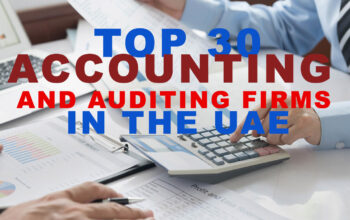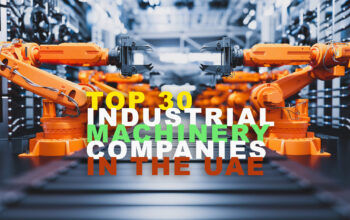Business News: Dubai offers dynamic business opportunities across various sectors, including real estate, technology, education, retail, and logistics. The city’s strategic location, visionary government initiatives, and growing demand for innovative solutions make it an attractive market. With a projected economic growth rate of 6.2%, Dubai continues to be a global hub for entrepreneurs.
1. E-Commerce in Dubai: Thriving in the Digital Era
Dubai’s e-commerce market is rapidly expanding, fueled by a growing digital consumer base and the increasing adoption of online shopping platforms. With major global players investing in the city, e-commerce is proving to be one of the most lucrative industries for new businesses. The market continues to grow with increasing online transactions and the integration of technology such as AI and payment systems that further enhance the consumer experience.
The UAE’s e-commerce market is projected to reach AED 14.4 billion by 2024, expanding at an annual rate of 12.5%. As the region’s e-commerce hub, Dubai is poised to remain a key player, offering a vast market for both established businesses and startups to tap into.
2. Real Estate in Dubai: A Dynamic Market for Investment
The real estate sector in Dubai is one of the most resilient and dynamic markets in the region, characterized by ongoing urban development, rising demand for luxury residential and commercial properties, and an influx of global investors. Real estate continues to drive the city’s economy, providing opportunities for businesses to tap into high-value property development and investment projects.
By the end of 2024, Dubai’s real estate market is expected to generate AED 100 billion in transaction volumes. With a steady growth rate of 3.7% in early 2024, the market offers lucrative prospects for investors and developers, bolstered by infrastructure advancements, upcoming mega-projects, and Dubai’s appeal as a global business hub.
3. Dubai’s Financial Services Sector: Growth and Innovation
Dubai has solidified its position as the Middle East’s financial services hub, attracting both regional and global investments. The sector is poised for continued growth, driven by financial innovations such as fintech, blockchain, and digital banking solutions. The government’s favorable regulatory framework and its push toward a cashless economy contribute significantly to the expansion of this vital sector.
Dubai’s financial services industry grew by 5.6% in the first quarter of 2024. With increasing demand for fintech solutions and investment opportunities, the sector is set to thrive, offering abundant opportunities for financial service providers, investors, and startups aiming to capitalize on the region’s economic growth.
4. Healthcare in Dubai: Innovation and Expansion
Dubai’s healthcare sector is undergoing a remarkable transformation, focusing on high-tech medical services, world-class healthcare facilities, and a shift towards personalized, patient-centric care. As the city’s population continues to grow, so does the demand for quality healthcare services, making the sector a key area for new businesses to explore.
The healthcare market is projected to reach AED 40 billion by 2024, with a compound annual growth rate (CAGR) of 8% over the next five years. The increasing prevalence of chronic diseases and the rising demand for healthcare innovations such as AI-based diagnostics and telemedicine solutions are driving this growth, providing opportunities for healthcare providers, startups, and technology innovators.
5. Tourism in Dubai: The Middle East’s Premier Destination
Tourism continues to be a vital pillar of Dubai’s economy, with the city attracting millions of visitors annually. Fueled by its world-class infrastructure, luxury hotels, and global events, Dubai remains a top global tourist destination. The tourism sector’s resilience is evident as it continues to attract visitors year-round, with strong government support for growth and innovation in the sector.
In 2024, the tourism sector is expected to contribute AED 40 billion to Dubai’s GDP. With increasing air travel connections, a growing focus on sustainability in tourism, and the upcoming global events, Dubai offers immense opportunities for businesses looking to tap into the rapidly expanding hospitality and leisure markets.
6. Education in Dubai: Building a Knowledge-Based Economy
Dubai’s education sector is undergoing a rapid transformation, driven by the increasing demand for high-quality education, innovation in learning technologies, and partnerships with international educational institutions. With the city becoming a hub for international students and a growing focus on skill-based learning, the education industry presents tremendous opportunities for new businesses in various fields, from K-12 education to higher learning and edtech.
The UAE’s education market is expected to reach AED 24 billion by 2025, with a compound annual growth rate (CAGR) of 5.5%. The demand for private education, online learning platforms, and vocational training solutions is expected to remain strong, providing ample opportunities for educational entrepreneurs to establish themselves.
7. Retail in Dubai: The Evolving Landscape
Dubai’s retail sector is known for its innovative approach, offering a blend of luxury, convenience, and cutting-edge digital experiences. The demand for both physical retail outlets and e-commerce platforms continues to rise, driven by the growing expat population and increasing tourism. Retailers are increasingly adopting omnichannel strategies to create seamless customer experiences across physical and digital platforms.
Dubai’s retail sector saw a 9.5% growth in 2023, with expectations to grow to AED 80 billion by 2025. The rise of online shopping, coupled with a growing interest in sustainable and personalized products, offers new business opportunities for startups in retail technology, luxury brands, and niche product markets.
8. Construction and Infrastructure in Dubai: Shaping the Future
Dubai’s construction and infrastructure sectors are a cornerstone of its economic growth, driven by continuous urban development, mega-projects, and an increasing demand for sustainable infrastructure solutions. The government’s focus on smart cities, green buildings, and future-proof urban development ensures that this sector remains one of the most promising for new business ventures.
The construction industry in Dubai is expected to grow by 6% annually, with the market reaching AED 77 billion in 2024. The demand for sustainable construction materials, innovative building technologies, and smart infrastructure solutions is creating substantial opportunities for businesses in the construction and infrastructure space.
9. Technology and IT in Dubai: Leading the Digital Transformation
Dubai’s technology sector is rapidly evolving, with the city embracing innovation in artificial intelligence, blockchain, cloud computing, and the Internet of Things (IoT). The UAE government’s investment in digital infrastructure, combined with its Vision 2030 agenda, makes Dubai one of the top global tech hubs. The sector presents great potential for businesses specializing in IT services, tech startups, and digital solutions.
Dubai’s technology market is expected to reach AED 15 billion by 2025, with a projected annual growth rate of 9.3%. The increasing demand for cybersecurity, smart city technologies, and digital business solutions offers vast opportunities for tech businesses in the region.
10. Logistics and Supply Chain in Dubai: Strategic Gateway for Global Trade
Dubai’s strategic location as a global trading hub and its advanced logistics infrastructure make the logistics and supply chain sector one of the fastest-growing industries in the region. The government’s focus on improving ports, airports, and logistics networks, combined with Dubai’s ambitious plans to become a leader in smart logistics, creates a wealth of opportunities for businesses in this space.
The UAE logistics market is expected to grow at a CAGR of 6.8% from 2023 to 2028, reaching AED 78 billion by 2028. Innovations in digital logistics, automated systems, and sustainable supply chain solutions are opening new avenues for business development in the logistics sector.








